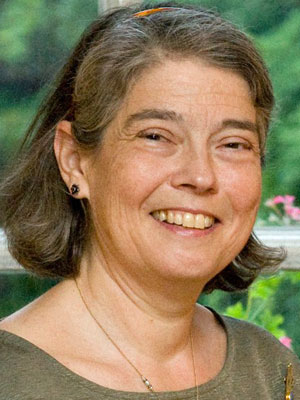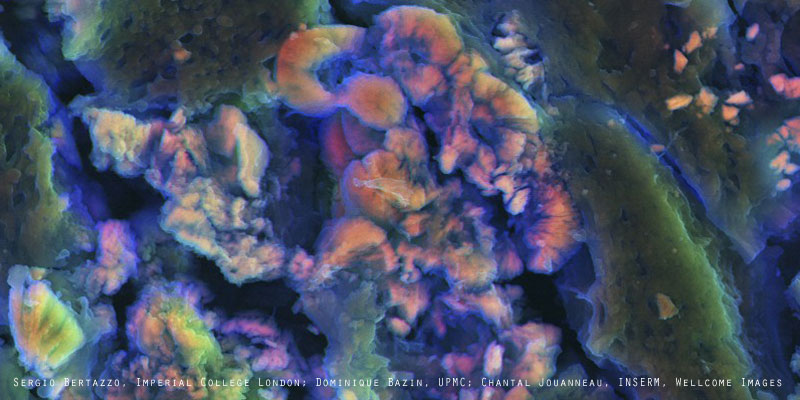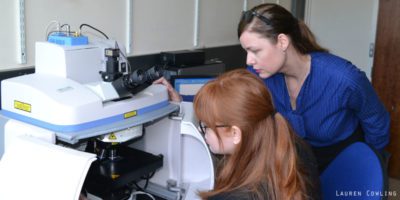Professor Fiona Karet is Professor of Nephrology and Honorary Consultant in Renal Medicine at the University of Cambridge and Addenbrooke’s Hospital. Her research looks at genes that are mutated in various disorders where the kidneys fail to do their normal ‘housekeeping’ job of maintaining balances of acid, salt, etc., to understand their underlying function in the kidney. The Clinical School at the University of Cambridge was one of the first in the country to receive an Athena SWAN Silver award, a project which Fiona leads.

“…We need to remember that this is not simply a ‘women’s problem’ and it’s not only women’s work to solve it; it needs everyone to contribute. I hope that the message that enabling people to do their best whoever they are would be easy to understand!..”
Becoming a doctor and specialising in kidney medicine
I knew quite early on after qualifying as a doctor that I wanted to specialise in nephrology (kidney medicine). When I was a medical registrar (middle-grade), one of my consultants suggested I do some research. He gave me my first project, investigating a protein in the kidney called endothelin (which constricts blood vessels), and I got my Ph.D. for that work. Although I have since developed my own ideas, I am still grateful to him for that opportunity.
I did my intermediate fellowship (clinical post-doc) at Yale, which was an extraordinary chance to learn molecular genetics in a world-leading lab. I came back to Cambridge 16 years ago to set up my own lab and complete my higher specialist training, and now I combine research and clinical work.
Working on kidney disease
As well as being the body’s washing machine – making urine and cleaning the blood of waste products of metabolism – our kidneys do an incredibly intricate and complex job of keeping many substances in the body in balance – including salt, acid and calcium to name but a few. If any of these functions fail, the results can be serious – for example early onset severe hypertension, dangerously low potassium levels or multiple kidney stones.
I began with patients who have rare inherited abnormalities in these pathways to discover some of the genes involved, to learn lessons about how the kidney does these things under normal conditions. Hopefully we will be able to develop some new treatments as a result. I also run a clinical service that looks after this type of patient.
Getting involved with the Athena SWAN charter and how it influences my work
Back in 2010 I set up a forum for our senior academic women – simply by inviting people to a networking lunch. I soon discovered there was a real need for mutual support. When Dame Sally Davies, Chief Medical Officer, issued her edict [that part of medical school research funding would be linked to Athena SWAN silver awards – see below], I was asked to lead the School’s work towards our Silver award. It is a huge project, as we are now nearly 2400 staff across 18 different departments and institutes, and we approached it as a single entity.
I firmly believe that it should not just be about women, but about making the School a better place to work, which means culture change and trying to support all our staff more effectively. We’re not there yet, but I think we’re making progress.
Why it’s important to address gender balance in science
Put simply, we are losing talent! Over 50% of our medical students are women – a similar figure to when I started back in 1980 – but women comprise only 13% of our clinical professoriat. But it’s not just about numbers. Through the SWAN project, we have initiated lots of new activities that in time we hope will begin to redress the balance, and with special emphasis on the ‘middle grade’ when the biggest demographic change occurs.
For example, we set up a ‘Returning Carers’ scheme that enables any researcher who has had a career break for caring purposes to apply for additional funds to help re-invigorate their work (so not limited to women). We launched a fortnightly School-wide electronic newsletter that has improved communication, we’ve created new staff networks – again not limited to women, offered new career development training and support, and the appraisal system has been updated. HR are very busy!
How departments can ensure that male academics are bought in to changing the status quo
This is a really important issue. We need to remember that this is not just a ‘women’s problem’ and it’s not only women’s work to solve it; it needs everyone to contribute. I hope that the message that enabling people to do their best whoever they are would be easy to understand! Also, senior engagement is essential and we are really lucky to have a tremendously supportive (male) Head of School.
Impact of the announcement from Dame Sally Davies, Chief Medical Officer, that medical school budgets would be linked to Athena SWAN silver awards
As you might imagine, there was an instant effect after this announcement! In our case, we stood to become ineligible for over £100 million in the 2016 Biomedical Research Centre renewal process if we didn’t take Athena SWAN on board – at the same time a carrot and a stick – but we’ve since extended our equality and diversity agenda far beyond the certificate. This shouldn’t be seen as a tick box exercise – sustaining the impact is key.
‘What gets measured gets done’? No instant fixes
Measuring the impacts of our work isn’t so easy, and there are no instant fixes. Having said that, collecting and analysing data, whether quantitative or qualitative, has been important in the development of the project. And getting department-by-department stats on (for example) equality and diversity training completion rates has led to almost 90% of our academics and over three quarters of the entire School staff now having done the online course, which we hope has raised awareness.
And for departments who want to drive up standards…
First and foremost, take an interest in all the staff and their welfare! Little changes can make a big difference, and asking staff for feedback is useful. Celebrating successes is important, and decent appraisal is really helpful… I have lots of other ideas!
http://www.cimr.cam.ac.uk/research/principal-investigators/principal-investigators-i-p/karet





